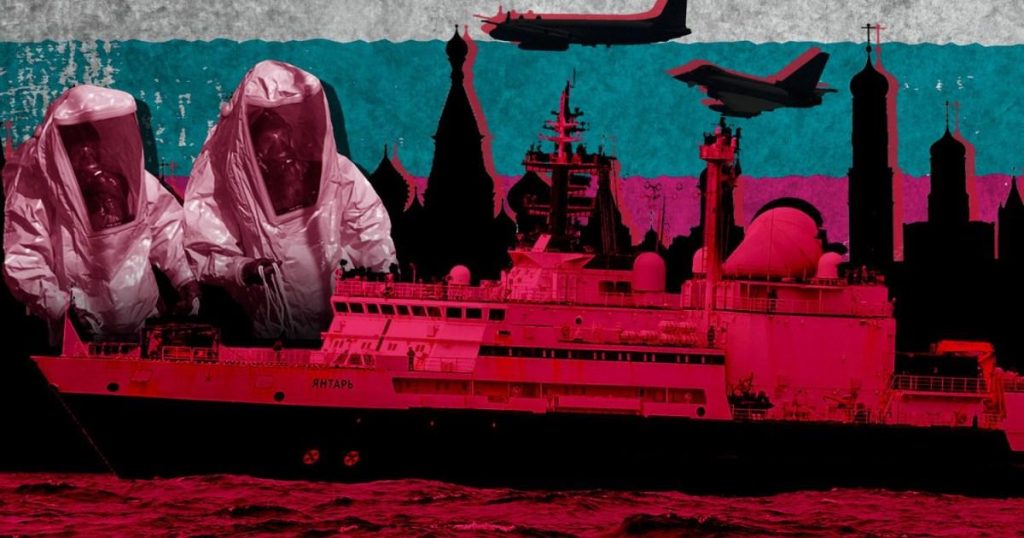The West’s Vulnerability in the Shadow War: A Looming Threat
The recent tracking of a Russian spy ship in British waters serves as a stark reminder of the ongoing shadow war waged by Russia and other hostile nations against the West. This incident, seemingly isolated, is merely the tip of the iceberg, revealing a broader, more insidious conflict where the West appears to be losing ground. This clandestine struggle, often referred to as the "grey zone," encompasses a spectrum of activities, including cyberattacks, espionage, sabotage, disinformation campaigns, and even assassinations. While seemingly less overt than conventional warfare, these operations can significantly destabilize nations, undermine democratic processes, and cripple critical infrastructure. A key concern highlighted by counter-intelligence experts is the West’s apparent vulnerability in this realm, stemming from legal and managerial constraints that hinder their ability to respond effectively to these unconventional tactics.
Bryan Stern, a decorated counter-intelligence specialist and former US naval officer, emphasizes Russia’s distinct advantage in the grey zone. He argues that Western governments are often paralyzed by risk aversion, while Russia operates with a greater degree of freedom, unburdened by the same legal and ethical considerations. This asymmetry allows Russia to employ tactics, such as the use of bio-toxins, that Western nations would deem unacceptable. Stern contends that the West’s defensive posture is weak, making them vulnerable to Russian incursions, while their offensive capabilities, though robust, are hampered by an inability to penetrate Russia’s defenses. This imbalance creates a strategic disadvantage, allowing Russia to operate with relative impunity while the West struggles to respond effectively.
The Salisbury poisoning in 2018, where a nerve agent was used against a former Russian spy and his daughter on British soil, exemplifies Russia’s willingness to cross lines that Western nations would avoid. This brazen attack underscores the stark contrast in operational philosophies. While the West prioritizes adherence to international law and ethical norms, Russia appears unconstrained by such considerations, allowing them to employ more aggressive and unconventional tactics. This disparity in approach poses a significant challenge for Western intelligence agencies, who must operate within a stricter framework while countering adversaries who are not bound by the same rules.
The pervasive nature of grey zone activities is further exemplified by the tracking of Russian spy ships, submarine activity, and the interception of Russian military aircraft. These highly visible incidents are likely just a fraction of the ongoing clandestine activities taking place beneath the surface. Stern asserts that for every detected Russian spy ship, there could be hundreds more operating undetected. This assertion highlights the scale and scope of the challenge facing Western intelligence agencies, who must contend with a vast and largely unseen threat.
The grey zone also encompasses activities such as cutting undersea cables, which can disrupt vital communication networks and cause significant economic damage. While often attributed to state-sponsored actors, definitively proving culpability in these instances can be difficult. This ambiguity adds another layer of complexity to the grey zone, making it challenging to attribute attacks and hold perpetrators accountable. This lack of clear attribution can hinder efforts to deter future attacks and create a sense of impunity for those engaging in these clandestine operations.
The growing cyber realm presents another significant challenge in the grey zone. Nation-state-backed hackers are increasingly targeting critical infrastructure, stealing sensitive information, and spreading disinformation. These attacks can have far-reaching consequences, disrupting essential services, compromising national security, and eroding public trust. The digital nature of these attacks makes them difficult to trace and defend against, requiring a sophisticated and constantly evolving cybersecurity strategy. Furthermore, the anonymity offered by the internet allows state-sponsored actors to carry out attacks with a degree of deniability, making it challenging to hold them accountable.
Stern’s assessment paints a bleak picture of the West’s current preparedness for this shadow war. He believes that the West is losing ground due to a culture of risk aversion within intelligence agencies and a lack of appreciation for the gravity of the threat. He argues that a more proactive and assertive approach is needed, one that is willing to "break some eggs" to counter the growing threat posed by Russia, China, and Iran. This shift in mindset would require a greater tolerance for risk and a willingness to engage in more aggressive counter-intelligence operations. He contrasts the current cautious approach with the decisiveness exhibited during World War II, suggesting that a similar level of determination and focus is needed to combat the present threat.
The West’s response to grey zone activities is further complicated by the difficulty in determining appropriate retaliatory measures. While conventional military responses might be considered disproportionate, the absence of a clear "toolkit" for responding to these clandestine attacks leaves Western nations struggling to find effective countermeasures. This lack of a defined response strategy allows hostile nations to operate with a sense of impunity, knowing that their actions are unlikely to elicit a significant response. Developing a comprehensive strategy for countering grey zone activities is crucial for deterring future attacks and protecting Western interests. This strategy must encompass a range of options, from diplomatic pressure and economic sanctions to covert operations and cyber counterattacks.
The West’s vulnerability in the grey zone is a growing concern that requires urgent attention. A more proactive and assertive approach is needed to counter the increasingly sophisticated and aggressive tactics employed by hostile nations. This requires a shift in mindset, a greater tolerance for risk, and a willingness to engage in more robust counter-intelligence operations. Furthermore, developing a comprehensive toolkit of responses is essential for deterring future attacks and holding perpetrators accountable. Failing to address this growing threat could have severe consequences for Western security and stability.











